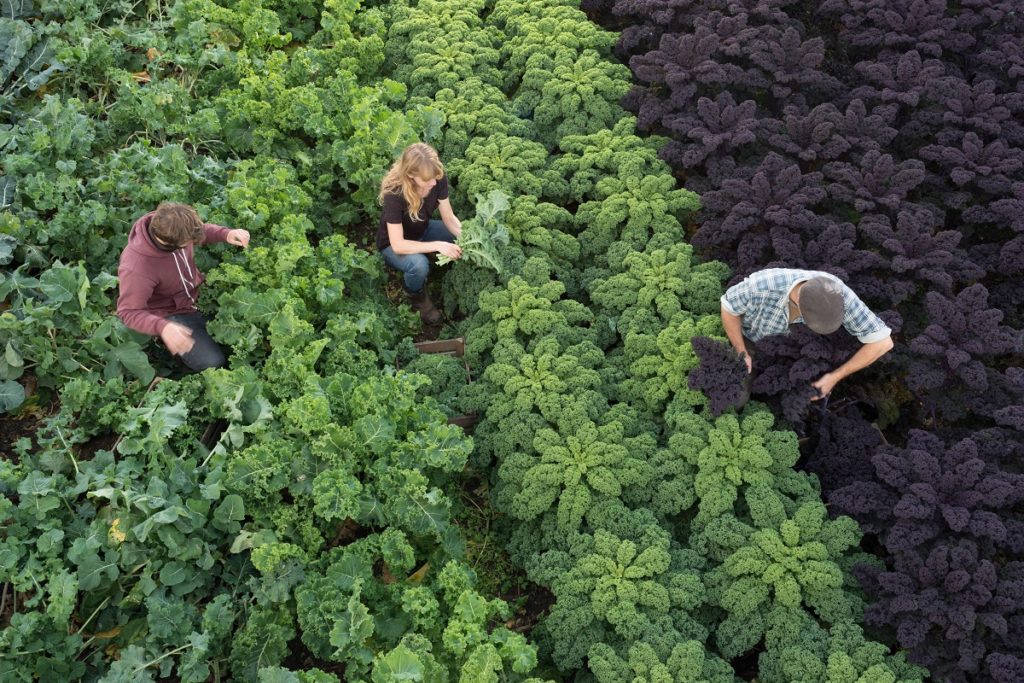As we become more health conscious, organic food is more popular than ever. At least according to conventional consensus, there are no proven health benefits to eating organic. But common sense prevails: there are many reasons to think that organic foods are better for you and the planet. For example, if animals are raised on healthy soil, fed healthy food, and live in healthy conditions (meaning no toxic chemicals), it stands to reason that they will contain far healthier bones, tissues, organs, and glands. Similarly, plants need nutrient rich soil to be nutrient rich.
Speaking of toxic chemicals, there is ample evidence that agricultural chemicals end up contaminating our aquifers, rivers, and oceans. It’s hard to get away from the fact that organic agriculture is much safer for people, animals, and the environment than conventional agriculture.
Of course, it’s hard to get away from the cost factor. Though you might be put off by the price hike in your grocery bill if you switch to organic, just keep in mind that if you don’t invest in your health today, higher costs could show up in your future.
The Price Difference
In general, organic foods are significantly more expensive than their conventionally grown counterparts. For a fairly detailed breakdown, look at this chart on the cost difference of many organic vs. conventional foods. Though you shouldn’t assume that organic is always the pricier option, you’ll see that the price difference, depending on the local supply and what you’re shopping for, can range from 20 percent to almost 200 percent more expensive for certain items.
For example, organic carrots cost 50 percent more than nonorganic in some stores, while organic eggs were marked 196 percent higher in some stores, as compared to conventional eggs. On the other hand, buying organic grains may actually save you some money, with rice and oats being roughly 10 percent cheaper.
Why Is Organic More Expensive?
Organic farms are heavily regulated by the government and subject to constant inspections. To be a certified organic farm, farmers need to pay fees that can be upwards of $1,500. This may not be a big deal for large farming conglomerates, but for small family-run farms it can be massive hit on their bottom line. The time and money that’s required to make sure you’re meeting the regulations for relatively small harvests can also lead to increased labor costs.
The price difference is also due to the fact that organic growers tend to be smaller producers who cannot provide the volume of food that major conglomerates can, especially with the use of GMOs, chemical pesticides, and herbicides. The demand for organic produce is often much more than these small farms can supply. While commercial agriculture can force higher production and lower costs to the consumer in the short run, the downside is higher costs in the form of illness and inferior nutrition in the long run.
The good news is that while the price of organic food is still higher than nonorganic, some costs are coming down as more family farms enter the market.
Going Organic Benefits Everyone
There are many compelling reasons to switch to organic food. For instance, in addition to the reduced environmental impact, returning to family farming methods has also been shown to improve animal welfare.
The strict regulation of organic farms means that animals tend to be healthier and are treated much better than on massive commercial farms. Animal welfare aside, the potential benefits of organic farming to the environment are definitely worth considering. Traditional farming methods are better for the soil and water supply, and they do not require the same level of non-renewable energy as agrochemical methods of farming. Furthermore, by maintaining an ecological balance that ensures the soil remains fertile, organic farming is also much more sustainable in the long-term.
Another factor to consider is how organic farming benefits rural development and generates farm employment. As demand grows and people move towards organic food, the number of farms—as well as the people who work on them—will need to increase to keep up with the demand. Most organic food tends to be locally sourced, so you are likely to see the benefit for yourself.
Overall, there are many good reasons to make the switch to organic. However, most of us still need to keep our food budget in mind. To save money, look for organic items on sale. They may even cost less than nonorganic items. Look for local produce and support your local farmers and ranchers. If you cannot afford to switch completely, start small. In the end, buying organic might just be the way forward—for you and for the planet.
Images from iStock/Rawpixel (main), Photography Firm (post).


